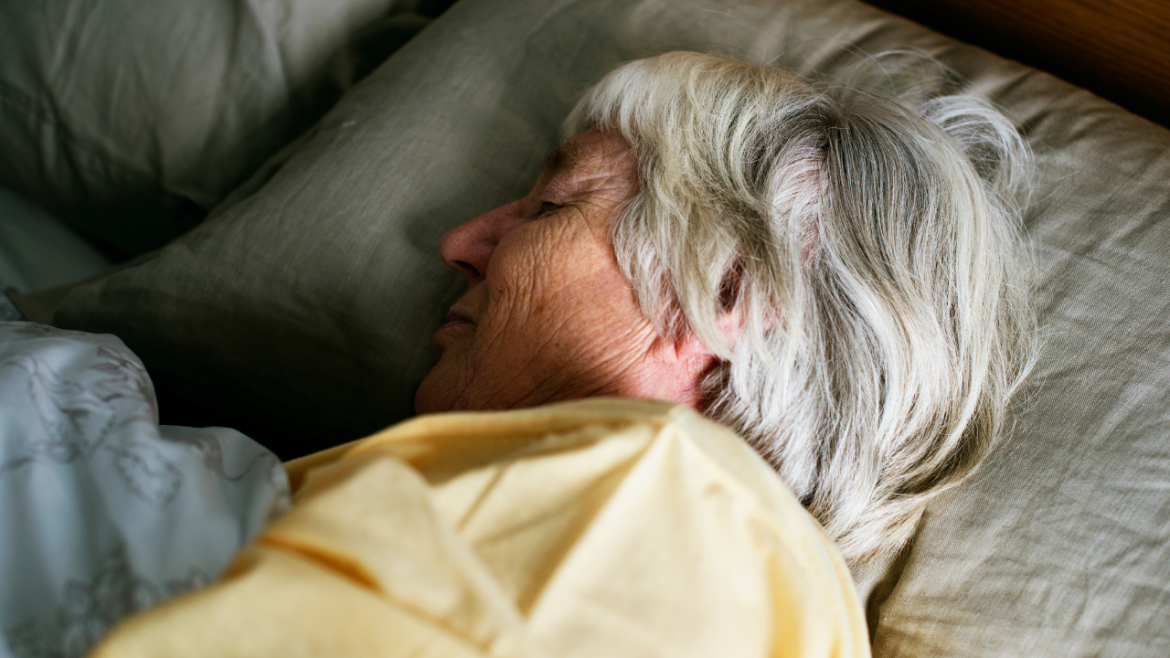How Much Sleep Should A Senior With Dementia Get?
Did you know that Leading Edge Senior Care has a Dementia Support Group? We meet monthly in Mesa. For more details <click here>
How Much Sleep Should A Senior With Dementia Get?
Dementia, a condition marked by a decline in cognitive function, affects millions of seniors worldwide. One of the critical aspects of managing dementia involves understanding and optimizing sleep patterns.
Sleep is essential for overall health, and it plays a crucial role in maintaining cognitive function, emotional well-being, and physical health. Determining how much sleep a senior with dementia should get can be challenging, but it is vital for their quality of life and well-being.
The Importance of Sleep for Seniors with Dementia
Sleep is a fundamental aspect of health, and its importance is even more pronounced in seniors with dementia. Quality sleep can help reduce symptoms of confusion, agitation, and mood swings that are common in dementia patients.
Additionally, sleep has a restorative function, allowing the brain to process information, consolidate memories, and clear out toxins that accumulate during waking hours. For seniors with dementia, disrupted sleep patterns can exacerbate cognitive decline and increase the risk of falls, infections, and other health issues.
Common Sleep Problems in Dementia Patients
Seniors with dementia often experience a range of sleep disturbances, including difficulty falling asleep, frequent nighttime awakenings, and early morning awakenings. These disruptions can lead to fragmented sleep and reduced overall sleep time.
Factors contributing to these sleep problems include changes in the brain associated with dementia, physical discomfort, medications, and environmental factors. Understanding and addressing these issues is crucial for improving sleep quality in dementia patients.
Recommended Sleep Duration for Seniors with Dementia
The National Sleep Foundation recommends that adults aged 65 and older get 7-8 hours of sleep per night. However, seniors with dementia may require slightly more sleep due to the increased mental and physical demands of their condition. It is generally suggested that seniors with dementia aim for 7-9 hours of sleep per night. This range provides enough restorative sleep to support cognitive function and overall health.
Strategies to Improve Sleep Quality
Improving sleep quality for seniors with dementia involves a combination of lifestyle changes, environmental adjustments, and, in some cases, medical interventions. Here are some strategies to consider:
Establish a Consistent Routine
Creating a regular sleep schedule helps regulate the body’s internal clock. Encourage your loved one to go to bed and wake up at the same time every day. This consistency can help reduce sleep disturbances and improve overall sleep quality.
Create a Comfortable Sleep Environment
Ensure the sleep environment is conducive to rest. This includes a comfortable mattress and pillows, a cool and quiet room, and minimal light exposure. Using blackout curtains and white noise machines can help create a more peaceful environment.
Encourage Daytime Activity
Engaging in regular physical activity during the day can help promote better sleep at night. Activities like walking, light exercises, and social interactions can reduce restlessness and improve sleep patterns.
Limit Daytime Naps
While short naps can be beneficial, long or frequent naps during the day can interfere with nighttime sleep. Encourage your loved one to take short naps of 20-30 minutes if needed, but avoid long naps that could disrupt their sleep schedule.
Monitor Diet and Medication
Certain foods and medications can affect sleep. Limit caffeine and alcohol intake, especially in the afternoon and evening. Additionally, review medications with a healthcare provider to identify any that may be causing sleep disturbances and explore alternatives if necessary.
Manage Symptoms and Discomfort
Addressing physical discomfort and managing symptoms of dementia can significantly improve sleep quality. Ensure your loved one is comfortable and pain-free. If they experience anxiety or agitation, consult a healthcare provider for appropriate interventions.
When to Seek Professional Help
Despite best efforts, some seniors with dementia may continue to experience significant sleep problems. In such cases, it is important to seek professional help. A healthcare provider can assess the situation and recommend appropriate treatments, which may include sleep aids, behavioral therapy, or other interventions. Consulting a sleep specialist or geriatrician can provide valuable insights and tailored solutions to improve sleep quality.
Conclusion
Sleep is a crucial component of health, particularly for seniors with dementia. Ensuring they get adequate and quality sleep can significantly impact their cognitive function, emotional well-being, and overall quality of life.
By implementing strategies to improve sleep and seeking professional help when needed, caregivers can help their loved ones achieve better sleep and enhance their overall well-being. Understanding the unique sleep needs of seniors with dementia and addressing sleep problems proactively can make a profound difference in their daily lives.

